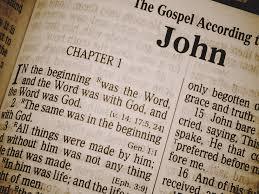UP-AGAINST-IT PRAYER

Rev. Bill Young
January 12, 2023

Scripture for the day: Luke 22:42-44 "Father, if it is Your will, take this cup away from Me; nevertheless, not My will, but Yours, be done." Then an angel appeared to Him from heaven, strengthening Him. And being in agony, He prayed more earnestly.
Thought for the day: Some of the most profound prayers I've ever heard come down to just this: "HELP!" When we're up against it in life and there seems to be no way out, and the people who should be able to give us some relief aren't in the picture, and the light at the end of the tunnel turns out to be an oncoming train, and we have to look up to see the bottom, all the prayers we learned as children and all the words we've always thought were so wonderful and useful in our talks with God come down to "Lord, help me!"
Jesus taught His disciples the meaning of true prayer when He pointed out the Pharisee who used flowery words and stood on the street corner where everyone could see him. He then contrasted him with the Publican who wouldn't even raise his eyes toward heaven but bowed his head and said, "Lord, be merciful to me, a sinner." And it's right to teach those things; they are important lessons. But now, in the garden of Gethsemane, Jesus, in all His humanity, was up against it. This was where commitment would be tested to the greatest extent possible. Would He put into practice the commitment and surrender to His Father's will that He'd been so free to demand of others?
Read the prayer through again; the first request was for deliverance. In His humanity, Jesus didn't want to face ridicule, torture and death. He prayed with all His might, "Father isn't there some other way?” knowing of course that the answer was no. But He also prayed, "Nevertheless". It's important in our prayers to remember that we're expressing to our Father what we would like to see happen in our lives and the lives of our loved ones but, at the same time, we are really looking for what He would have happen in their lives – and sometimes those two goals are not the same.
The answer to Jesus' prayer was the only answer possible; "No, you'll have to go through it in order to make reconciliation possible." But, when the answer was given, an angel came to provide the needed strength. Selah; pause to consider the implications of this for the challenges each of us face. If the Father said no to Jesus, why, do you suppose, do we have the tendency to get so upset when He allows us to go through sufferings not nearly as devastating? Isn't it just like God to provide the strength we need when He chooses to allow us to weather the storms of life? And isn't it just like Jesus to provide the example for us (and isn’t it just like most of us to forget about that)? Remember, earlier that evening He'd promised the disciples that, "I will not leave you comfortless."
Finally, when He prayed more earnestly it wasn't to change God's mind; that question had already been settled. No, His more earnest prayer was one of submission, not rebellion. Jesus wanted the Father's will done so much that He was willing to submit to anything the Father deemed necessary to bring it about. What an incredible lesson is here for us. Are my prayers those of one submitting to the Lordship and will of my heavenly Father, or are they petitions for Him to do what I want? Am I spending time with him to get him to do what I want or to find out what’s on his agenda?
When I pray earnestly about some issue, is it to discover His will or to impose my own? Jesus taught us through the model prayer He gave the disciples and through this episode in the garden that our prayers must always include the heartfelt idea, "Thy will be done on earth (in my life) as it is in heaven."
Now go take on your world (pray first). - Bill